The Exceptional Duo of Audemars Piguet Royal Oak Frosted Gold Selfwinding 34mm with Crystal Sand Dials
We should ask to make them bigger!
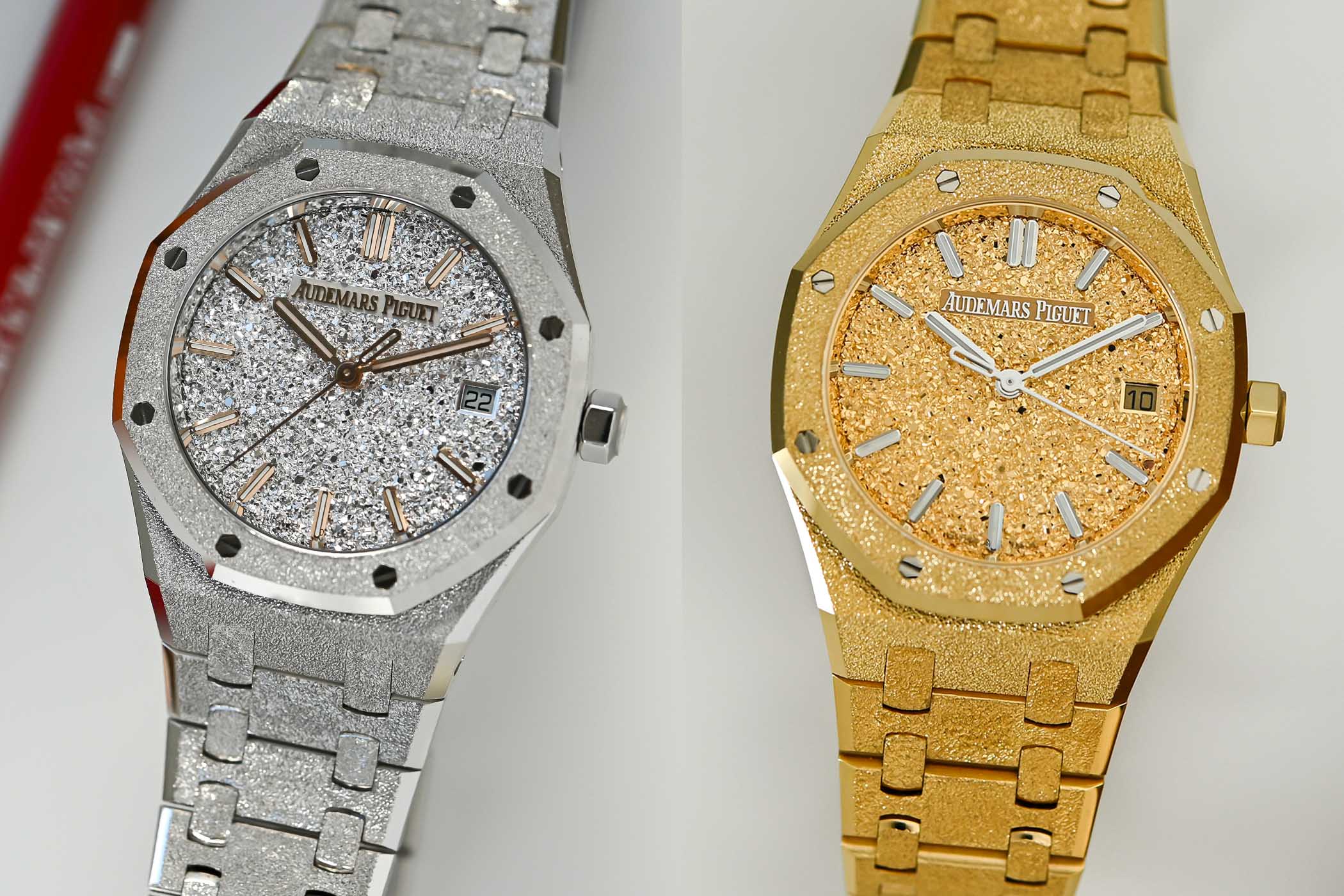
Audemars Piguet introduced the Royal Oak Selfwinding 34mm in 2020 as the smallest-sized option with mechanical movement. Since its debut, AP has expanded the range with several variations, ranging from simple stainless steel to diamond-covered pink gold versions. For 2024, Audemars Piguet added two new models to the Royal Oak Frosted Gold Selfwinding 34mm series—one in yellow gold and one in white gold—both adorned with special crystal sand-finished dials in yellow gold or rhodium-plated. And we have something to say about them!
The monochromatic Royal Oak Frosted Gold Selfwinding 34mm watches rely on texture and light rather than colour, with their hammered finish on the case and bracelet complemented by the crystal-like surface of the dial. Observing these smaller Royal Oaks, one can’t help but wonder what similar time and date models in 39mm and 41mm would look like if Audemars Piguet offered them in these sizes.
The frosted gold case and bracelet are currently available in various 37mm and 41mm models, as seen in the Double Balance Wheel Openworked and Selfwinding Chronograph references. Additionally, the Royal Oak Perpetual Calendar “John Mayer” Limited Edition featured a blue crystal sand dial in a 41mm case, giving us a glimpse of how beautiful a larger Royal Oak boasting sand crystal dial could be.
Envisioning a 41mm white/yellow gold Royal Oak with a frosted finish and various crystal sand dial colours is tantalizing, especially for those who feel somewhat left out by the smaller 34mm version. Until AP actually creates one, let’s look at the existing 34mm versions and appreciate their exquisite design.
The Royal Oak Frosted Gold Selfwinding 34mm watches feature hammered 18-carat white or yellow gold cases and bracelets. This distinctive frosted finish, introduced by Audemars Piguet in 2016, was created in collaboration with fourth-generation Florentine jewellery designer Carolina Bucci, whose great-grandfather opened a workshop in Florence almost 150 years ago in 1885, where he pioneered metalworking techniques. The textured finish on these precious metals is achieved by repeatedly striking the surface with a diamond-tipped tool, creating micro-dents that catch the light beautifully. This visually stunning effect is elegant and subtle, changing with the light and surroundings. The frosted finish adds a vibrant, dynamic element to the design initially conceived in the 1970s, giving this legendary watch another layer of emotion and appeal.
A female friend who wears the regular-dial white Frosted Gold Selfwinding 34mm shared her experience, noting that while the dented surface of the bracelet occasionally catches on fabric, pulling a thread or leaving a mark, she attributes these mishaps to her own hand and wrist movements rather than any flaw in the watch’s design. Similarly, while the “regular” Royal Oak bracelet might catch a few hairs on a man’s wrist, this minor inconvenience is far from a reason to part with such a stunning timepiece.
While we may have grown accustomed to the beauty of the frosted finish, the so-called crystal sand dials continue to captivate us. These diamond-sprinkled-like surfaces are created through a process that begins with simple stamping, followed by yellow gold or rhodium plating of the brass dial plate. However, there’s nothing simple about creating the stamping die. This involves electroforming, a technique that builds metal parts atom by atom, allowing for detailed designs and unmatched accuracy. The result is a dial with a texture that looks and feels like natural crystal sand, hence the name.
The applied pink gold or white gold hour indices and the matching AP-style hands are treated with lume for enhanced legibility. The date windows are colour-matched to the dials, as customary for AP. While the reflections from the dial’s surface might sometimes make reading the time less than ideal, it’s possible that our eyes are subconsciously diverted and drawn to the timeless beauty and appeal of the diamond dust-like dial finish. Some suggest that our appreciation for shiny objects is embedded in our DNA, a product of evolution: water’s glistening surface signalled a vital life source, so anything that sparkles is naturally perceived as desirable. But I digress.
Yet, what else is there to add? Like other Royal Oak Selfwinding 34mm models, these exquisite references are equipped with Caliber 5800, operating at a frequency of 28,800 vibrations per hour and offering a power reserve of 50 hours. The movement is visible through the sapphire caseback, showcasing its intricate mechanics. The cases are water-resistant to 50 meters, ensuring durability in daily wear. Both variants are priced at EUR 62,400, and to purchase, “plan an appointment”.
In conclusion, reflecting on these aesthetically striking yet modestly-sized Royal Oaks, I am increasingly convinced that we should urge AP to produce larger versions. Historically, brands have often downsized watches initially designed for men to cater to their women’s collections. Now, there’s an opportunity for a reverse trend. Just imagine a 39mm or 41mm white frosted gold Selfwinding with a captivating blue or salmon crystal sand dial – it would be a knockout!
For more, visit AudemarsPiguet.com.

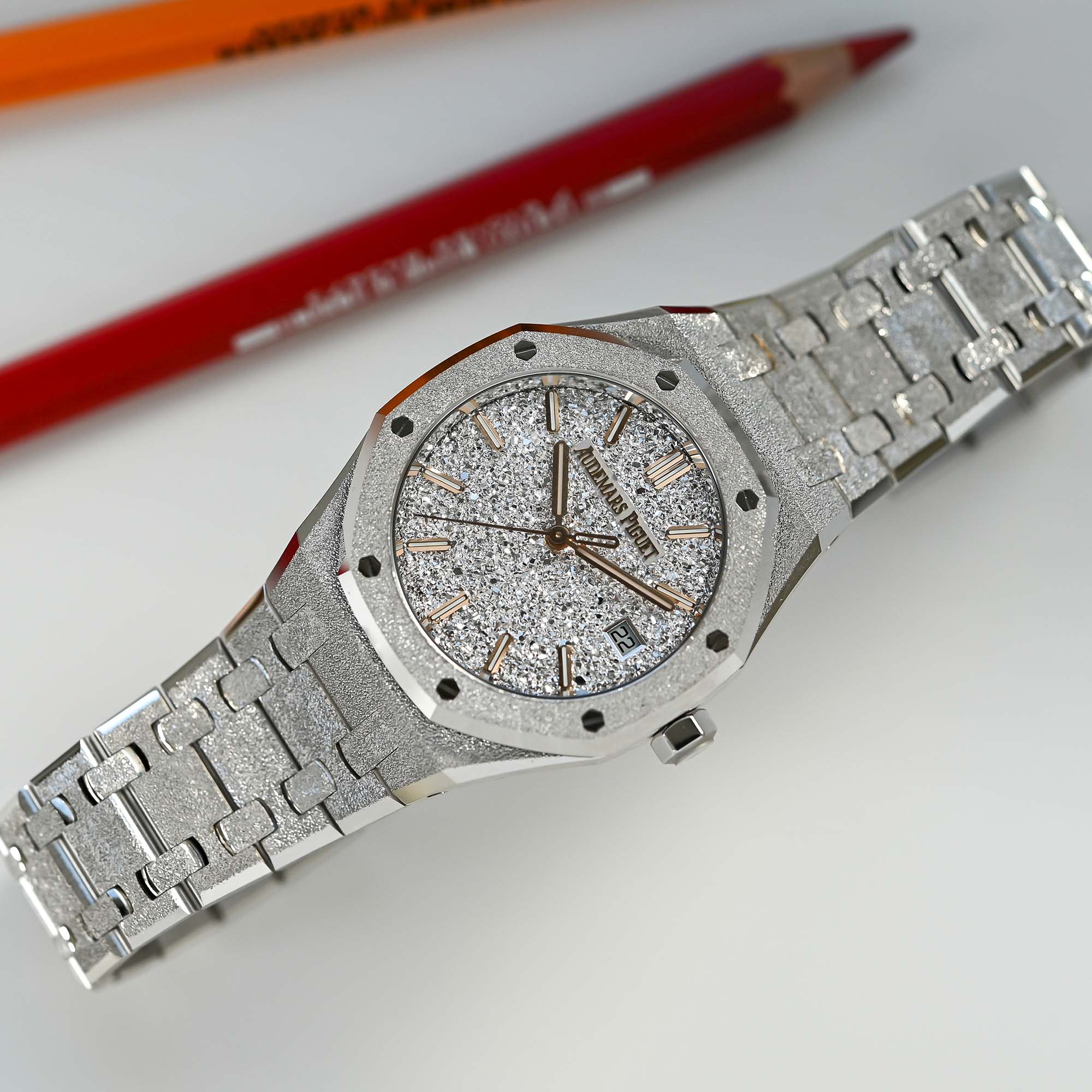

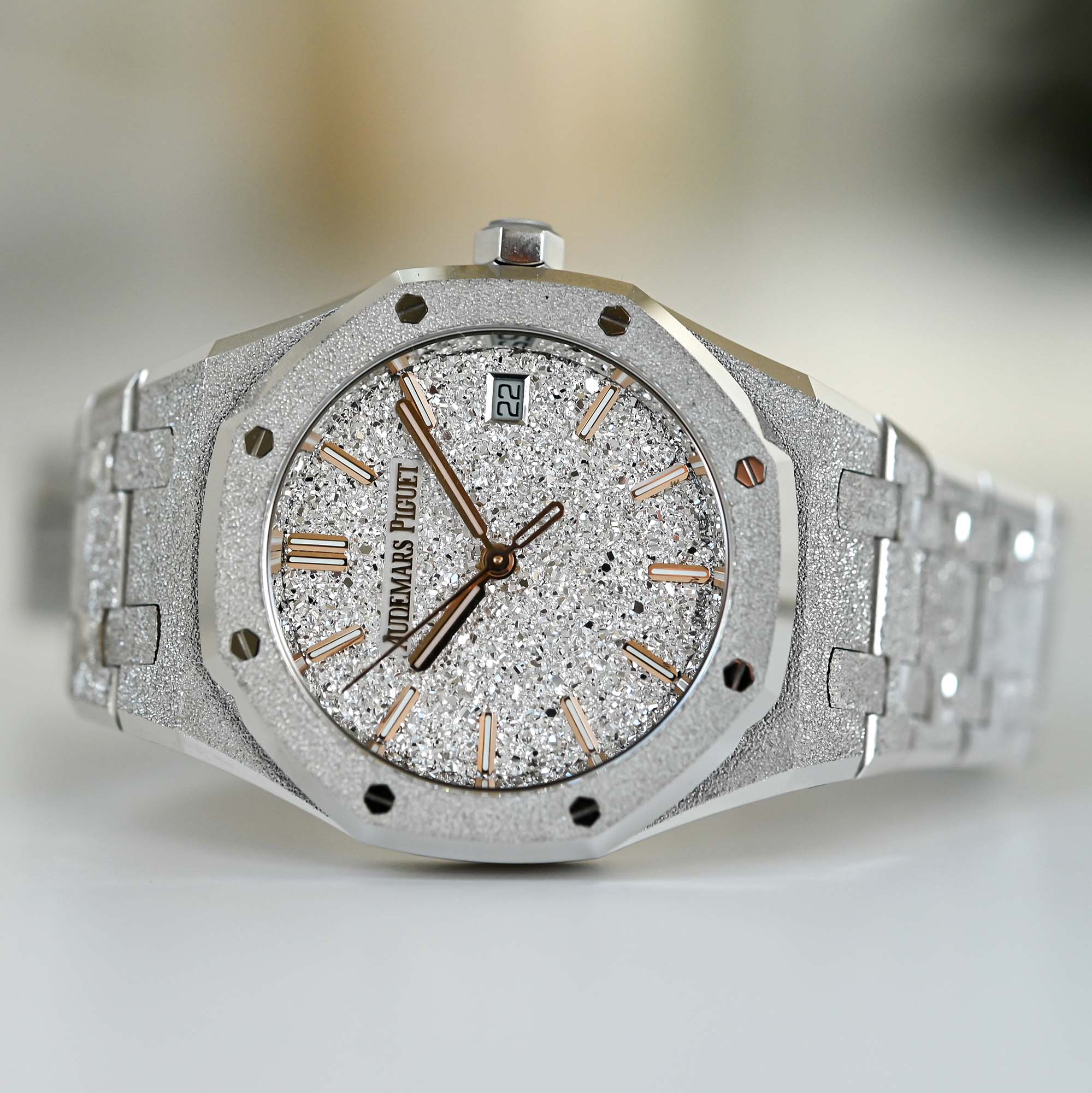
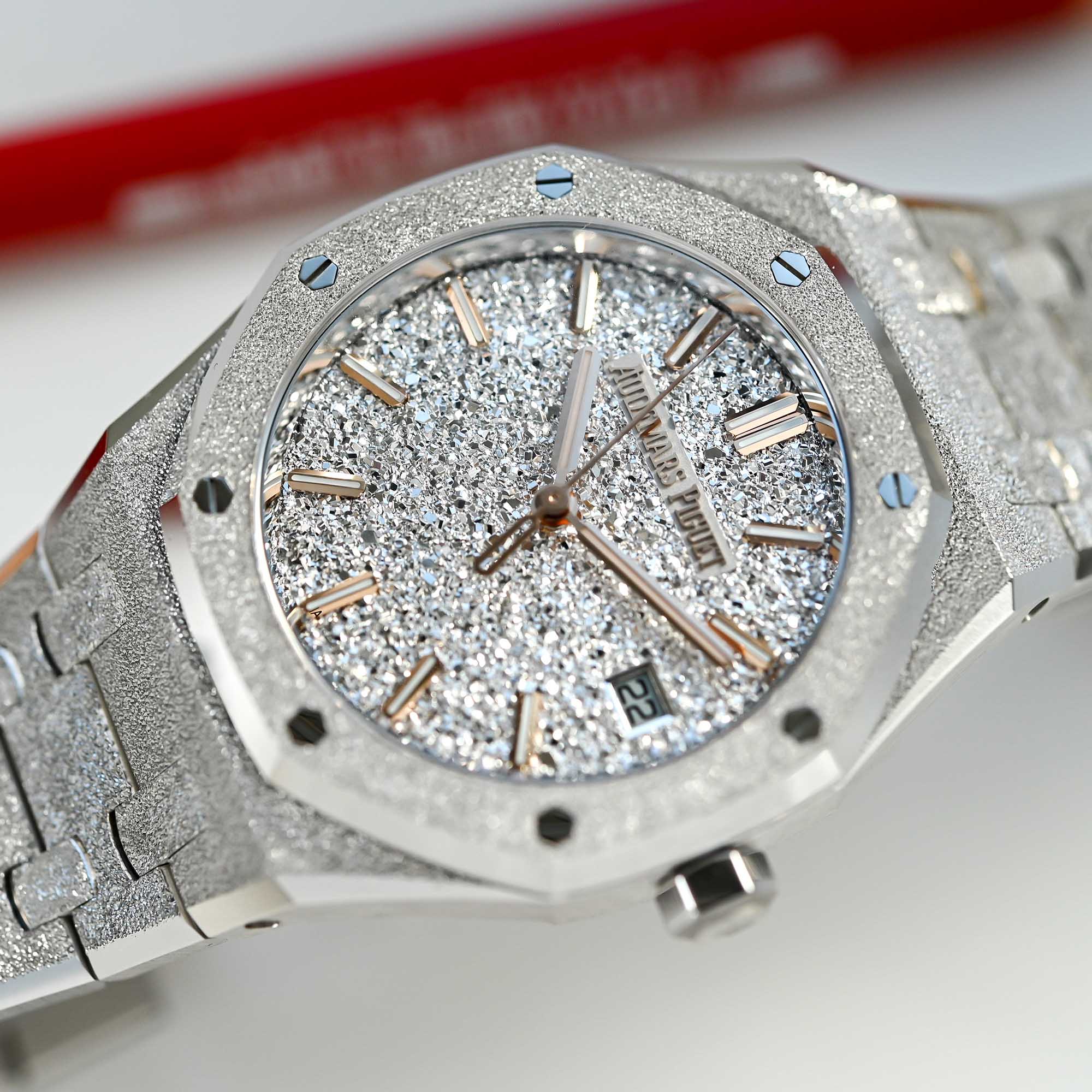
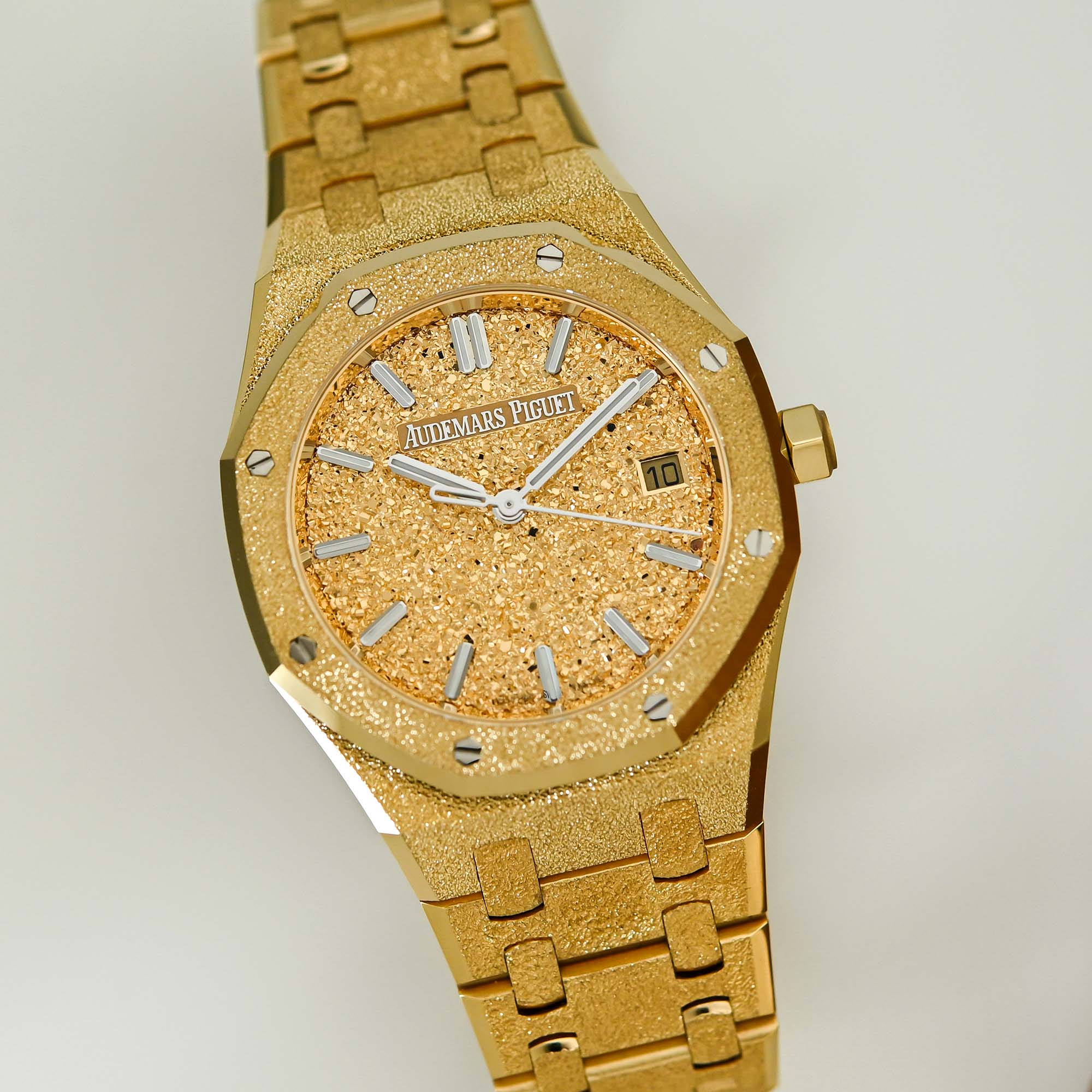
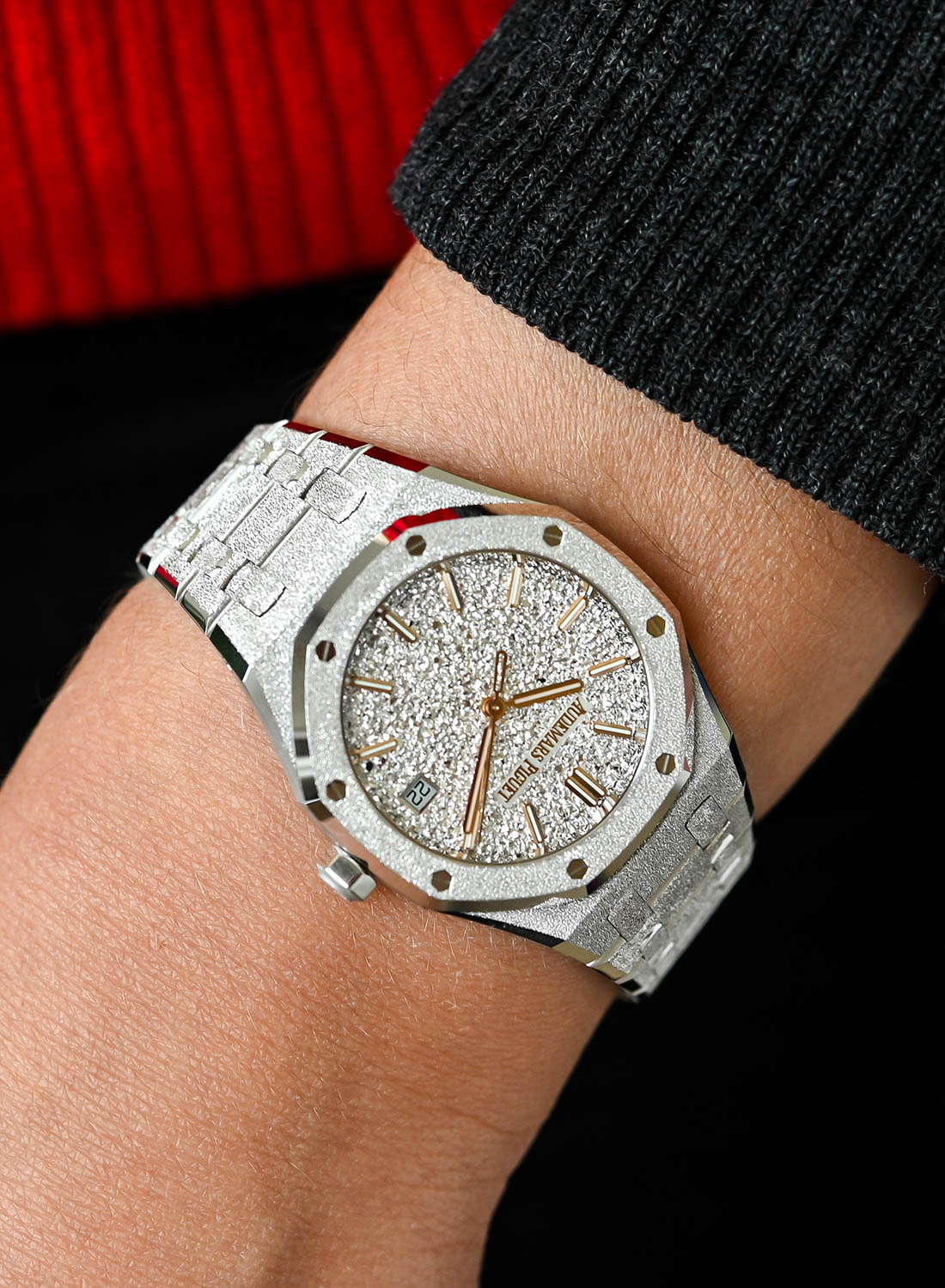
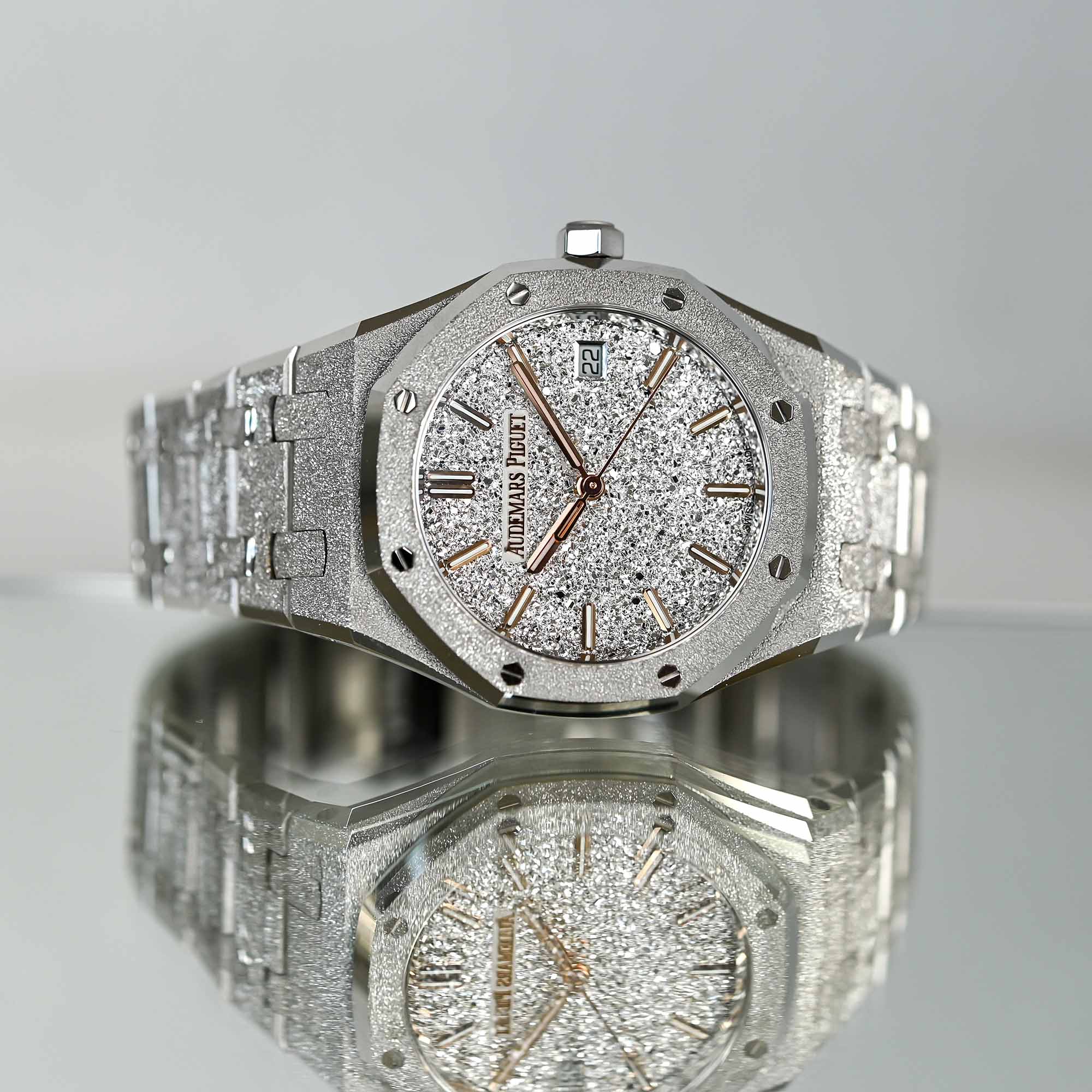
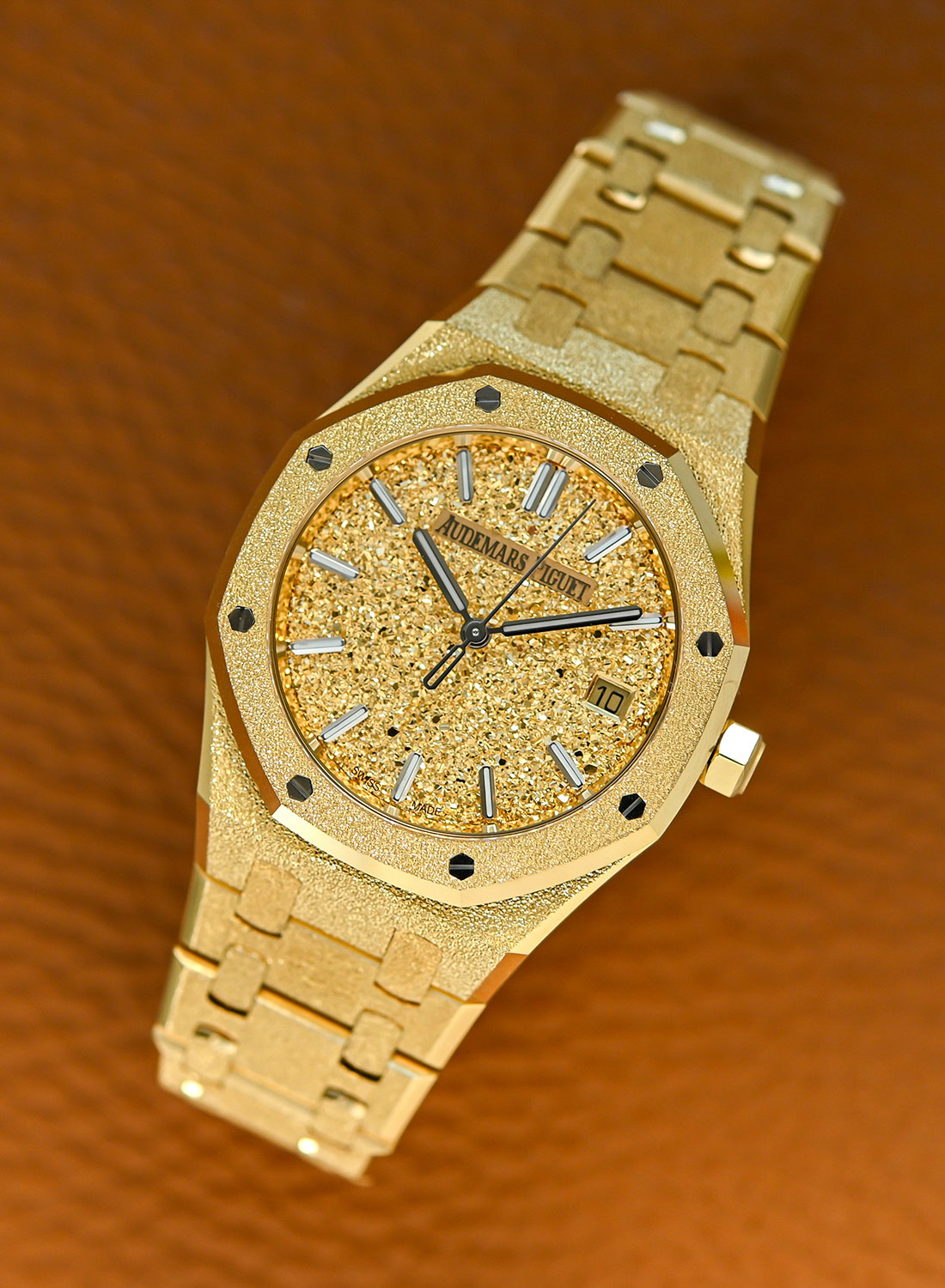
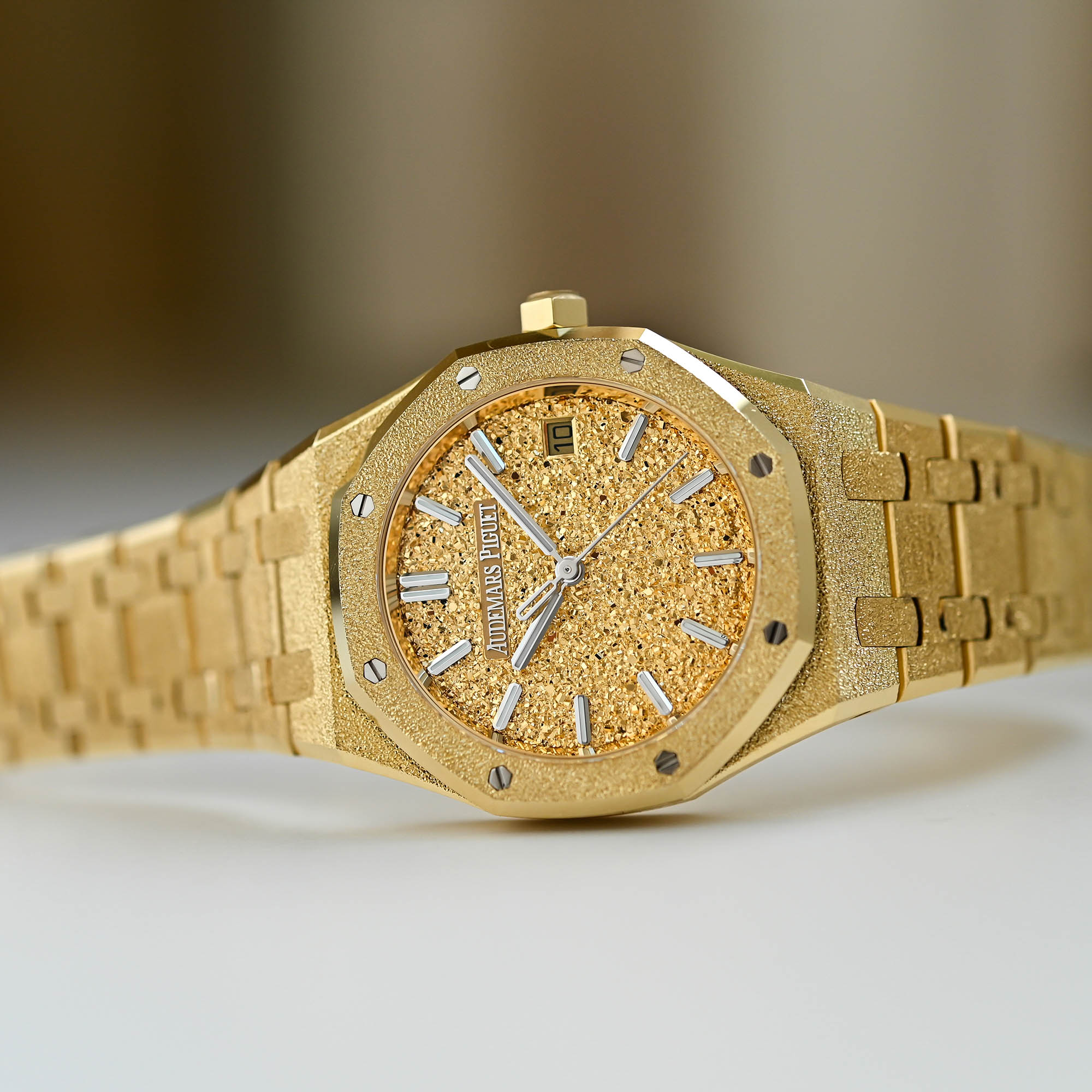
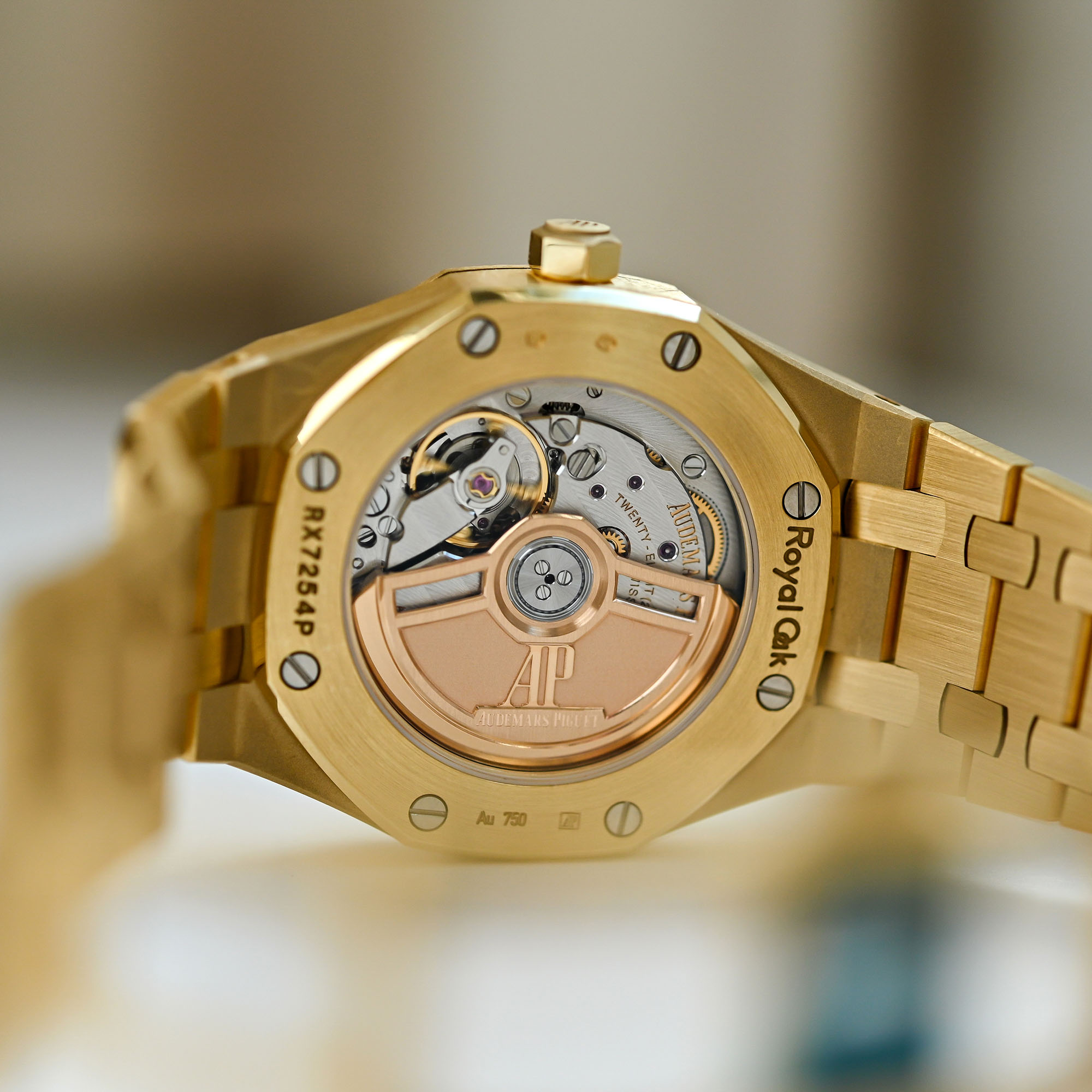
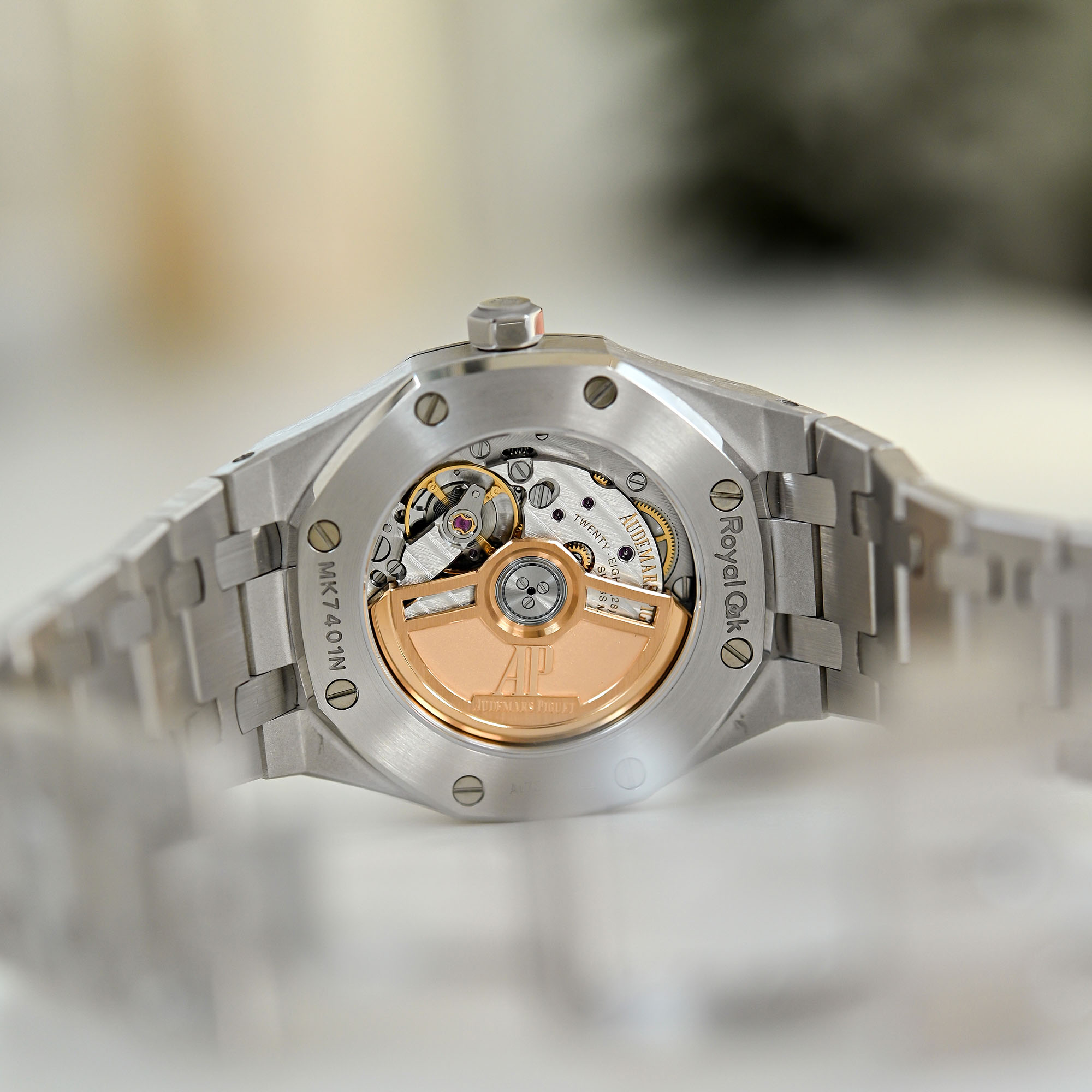
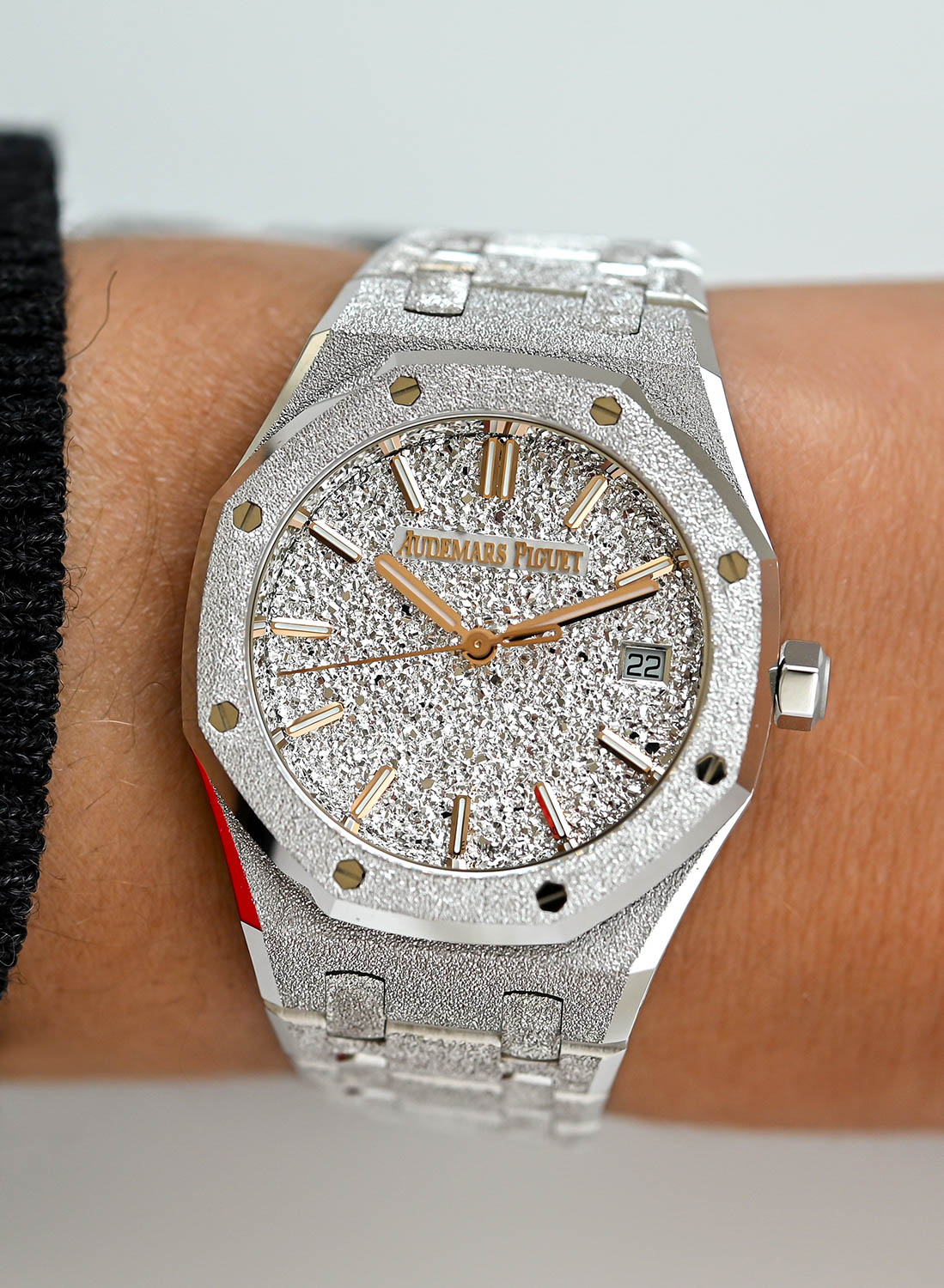
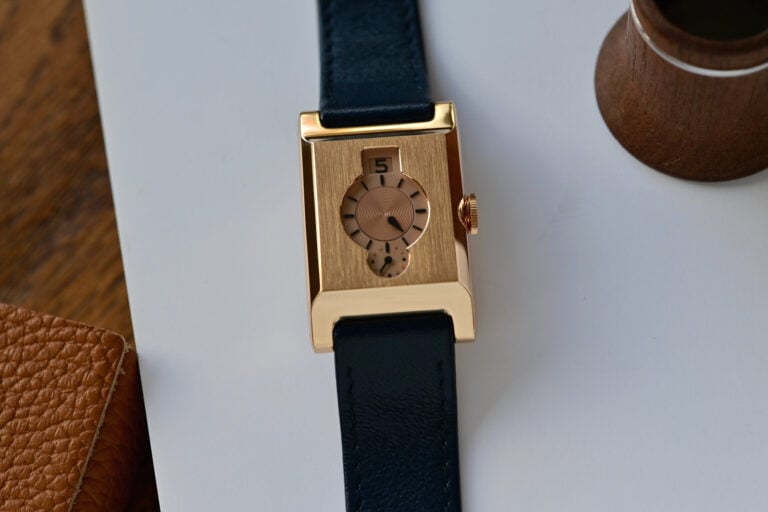
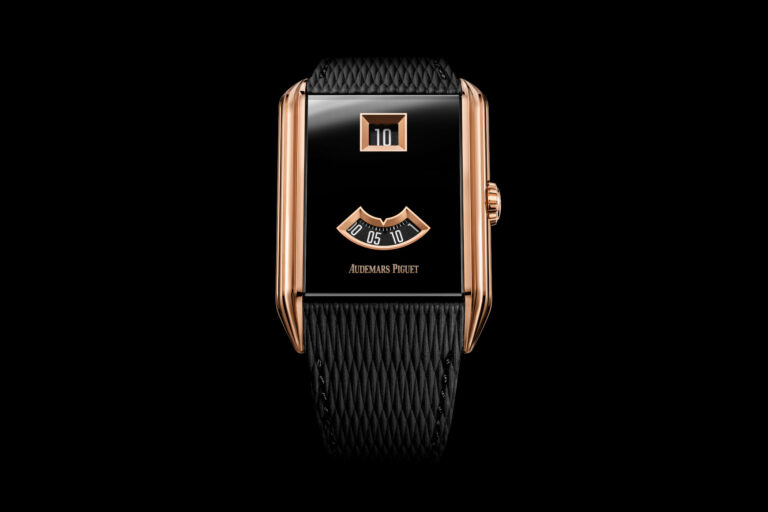
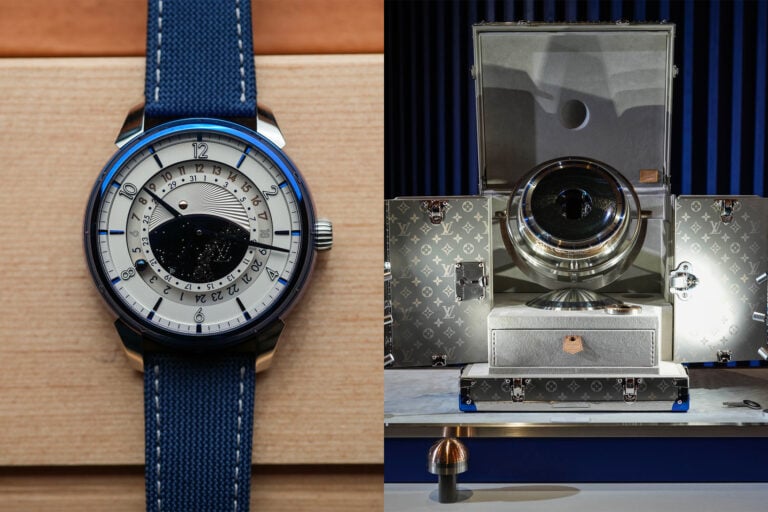
2 responses
It’s like Hublot did a collab with Invicta
Tell us how you really feel!